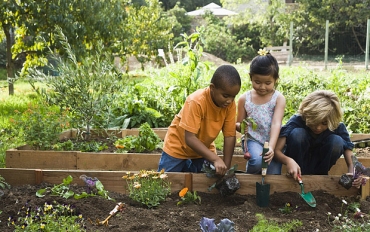During summer, the school will finally close to a temporary end. This is the time when students are getting tired of school and they could get restless. They have been expecting to get a wonderful summer vacation. There are different ways for parents to continue the education process. In the summer, gardening is a good way to extend our child’s education. There are new skills that they can learn. They will know about types of plants, how to plant them, how the grow, what kind of maintenance tasks needed and what plants that are edible and that are only used for decorative purposes. This is a good opportunity to get a real experience in life and children will appreciate the fact that growing food takes some effort.
This is a very good opportunity for children who think that food only comes from local grocery stores. The moment children go to the gardening store and pick a bag of seed, they get new method of education that’s outside the text book. In this case, children should get involved in all phases, from planning to harvesting. Gardening is a direct implementation of biology lesson and children we will be more interested in this subject when they go back to school. Children should also be encouraged to read gardening books and read how seed should be planted successfully. Gardening is also about planning and management skill. In this case, children could make a map of the garden and define the proper layout for their gardening project. They should have hands-one experience on how to prepare the soil. This will allow them to reap the full rewards of gardening. Each plant needs enough room to grow, so there should be enough space horizontally and vertically.
Children could be taught on how order seeds properly from catalogues. It is important to choose plants that will grow well in the area. Some plants could provide us with short- or long-term results. In this case, we should choose plants that can provide harvest both in short and long-term. As an example, for families that live in California, they could plant a couple of orange trees for long-term harvest, as well as some yams and tomatoes for short-term results. Harvesting is a rewarding process and to make them feel more motivated, it is important that there are always some short-term results. When planning for garden, parents could guide children using specific math skills.
Gardening allows children to learn about the geology of their surroundings. They will know how to prepare soil, mulch and maintain pH balance. It is also a physical activity, because the soil needs to be turned. They need to spread the fertilizer, put the seeds and remove weeds. There are different skills that can be directly implemented for school children. As they need to manage the garden each day, children will learn more about responsibility. If they neglect the watering, weeding and cleaning tasks, they will immediately see the results of their negligence. In the end, enjoying home-grown vegetables and fruits can be a very rewarding experience.

